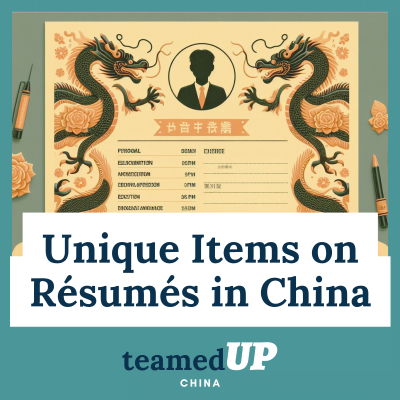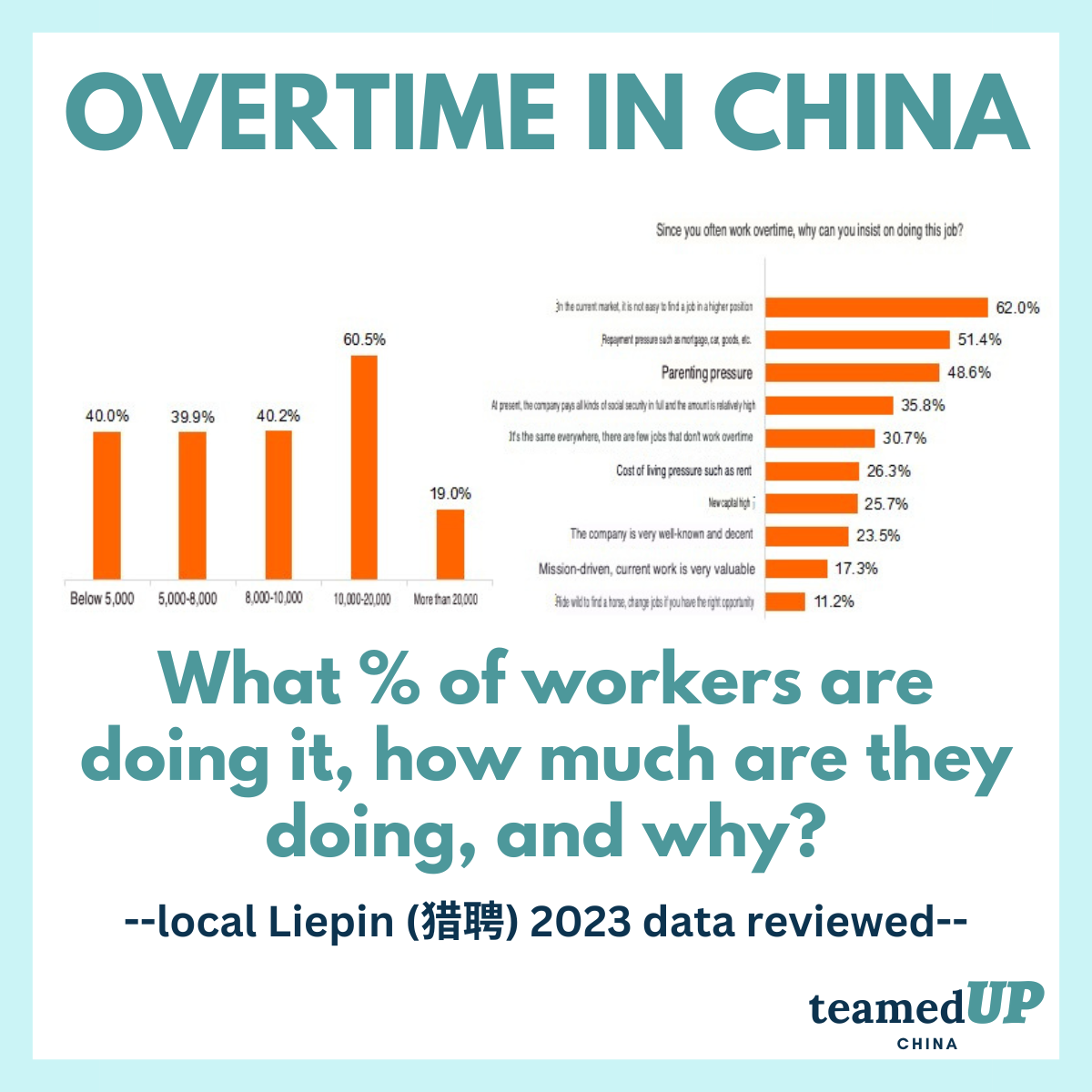The Chinese Resume! While it shares a lot with the international resume, it has a decidedly different set of standards as well.
Today we dive into 11 unique differences that you’ll find on most Chinese CVs.
If you happen to be the chosen one on your team combing through these CVs, check out our related coverage on tips for choosing the most reliable candidates in China.
Working on your own Resume and job applications? Check out our friends over at Resume Captain.

1) Professional Photo
The vast majority of Chinese CVs contain a professional photo. This photo is most often on the top line of the CV – on the left or right, and sometimes center position.
When possible, this photo is taken in a more professional manner, with the candidate dressed up in business attire and the photo taken by a pro photographer. Job hopefuls in China across industries and career paths have professional photos taken every several years, at most career stages. In every step of a China-based career, from new College graduates to the CEO level, professionals have this photo ready to go.

2) Gender
CVs in China most often contain a line for gender.
The Chinese word for ‘gender’ is: 性别 (xìngbié).
Male: 男 (nán)
Female: 女 (nǚ)
Note: While this field is seen a lot, it is not required and is just as often seen left out.
3) Relationship/Marital Status
Another line commonly seen on a Resume in China is ‘Marital Status’. In Mandarin,
Marital Status: 婚姻状况 (Hūnyīn zhuàngkuàng)
Married: 已婚 (yǐ hūn)
Single: 单身 (dānshēn)
Divorced: 离婚 (líhūn)
Again, this field is also optional. If the candidate feels comfortable displaying this information, they do so.
4) Height
Interesting one! This writer is making a note to do a poll on why height is included on Chinese CVs. I’ll be back with some (hopefully) interesting feedback on the why. In the meantime – here’s how it’s displayed in Mandarin:
Height: 身高 (Shēngāo)
The listing is traditionally written out in centimeters. For example: ‘175cm’.
5) Identification Number (Shēnfèn zhèng)
The ‘ol national ID number, every country has them! This number is displayed most commonly in government-related industries. In China, this category also includes State-owned Enterprises across most sectors and public-facing positions.
Identification Number: 身份证号 (Shēnfèn zhèng hào)
For non-Chinese citizens, a passport number will do fine!
Passport Number: 护照号 (Hùzhào hào)
…in this case, one may also include – Nationality: 国籍 (Guójí)
6) Age
Another personal item to add to the list, and one that commonly uses the Chinese date format we just looked at (see #7!).
Many candidates choose to list their age on their CV in China. The line is usually as so in Mandarin:
Date of birth: 出生日期 (Chūshēng rìqí)
Followed by that lovely date format ~
YYYY年MM月DD日 or YYYY年MM月.
7) Target Salary
Chinese CVs can be quite direct! Many candidates choose to include a target salary range to set expectations upfront. This writer is personally a proponent of both employers and candidates setting a clear salary range in Job Descriptions and CVs, respectively.
We have seen firsthand how much time this simple line can save.
Expected Salary: 期望薪资 (qīwàng xīnzī)
The salary can be listed as a monthly or annual amount.

8) Wechat ID
We saved a big one for number 8, the king of all numbers in China. Wechat!
We’ve taken a look at the importance of Wechat in the professional spaces of China. Wechat is so prominent in modern professional exchanges that it has practically replaced email, even in the recruiting process! Even our own recruiting pros accept CVs via Wechat on a daily basis, as it is such a primary form of communication for life in China.

the new graduate bravely faces the job market!
9) Date Format yyyy/mm/dd
The most common date format in China is the yyyy/mm/dd or yyyy/mm format.
Dates listed on a Chinese CV are most likely going to be in this format.
In the Chinese language, this format can be written quite clearly by only adding 2-3 characters:
YYYY年MM月DD日 or YYYY年MM月.
Which is kind of like doing this in English:
YYYYyear MMmonth DDday or YYYYyear MMmonth.
While it may not be what all international parties are used to, the date format is admittedly clean and logical. Fair warning – once you begin to use it, it may be tough to go back!
10) Beefed up Education Section
Education is one of the cornerstones of modern Chinese society. The Chinese CV often reflects this by being a section that is emphasized greatly. Degrees and certifications are highly valued in this society, so why not emphasize them on an application Resume?
Education sections can be placed above Work Experience on many Resumes. The industry and career path do matter here. Some careers in China, much like that of anywhere else, have expected educational paths to take and hurdles to surpass.
Great educational accomplishments, furthermore, are simply a great way for candidates to stand out amongst peers.
11) Underlying Humble Presentation and Language
Save this as bonus one when revisiting.
11) Statement of Intention or Objective Statement (Instead of Cover Letter)
While investigating Cover Letters in China, we concluded that this Statement of Intention or Objective Statement basically serves as a substitute for the traditional Cover Letter.
Our recruiting staff reflected on this in the Cover Letters article:
“We more often see that they’ll write a short sentence, based around their motivations.” – Ms Chen, Recruiting Pro
“Instead of a [cover] letter, it’s a very simple why I think I’m suitable for this position in a couple of sentences.” – Ms Zhu, Recruiting Pro
While this statement may sometimes be included in email text or via Wechat message, it is just as common to see it toward the top of a CV.

Hiring in China?
We can help, and stay within your budget!
Our China Recruiter Pro service helps companies utilize leading Chinese job platforms such as Maimai, Zhaopin, 51job, BOSS Zhipin, Lagou, 58 Tongcheng, and Liepin. Contact Us for a free consultation to discuss hiring goals, salary & compensation budgets in China, and if TeamedUp China is the right fit to support your organization.
Let’s find your next great China-based team member today.








